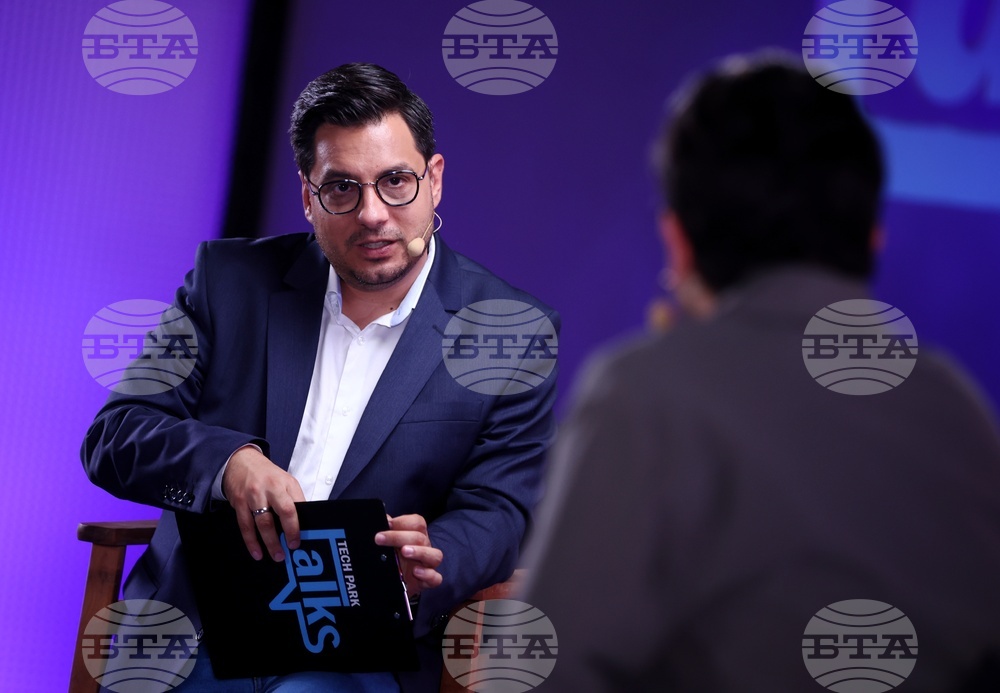site.btaDisinformation, Ways to Fight It Discussed during Sofia Tech Talks Forum


The topics of disinformation and the fight against it were discussed at the fourth edition of the forum Tech Park Talks. The event took place at Sofia Tech Park Thursday evening.
Cybersecurity, information and communication technology specialists, journalists spoke on the topic of the forum - The Guardians: Science and Technology Protecting the Truth.
"When you have to analyze the health of the media or the media environment, when you have to give an honest answer about what exactly the state of the media is, you have to see the symptoms. And one of the first symptoms was how the news is being manipulated and how professionally it's being presented. Because especially for our region, the professional level of information processing and handling is quite compromised for a number of reasons," said Antoaneta Nikolova, a communications expert and journalist with experience in international and European affairs, media law and online regulations. During the event she spoke about her experience within the Balkan Free Media Initiative. Among the probable reasons for the compromised level of information processing, she pointed to political attitudes, pressure, and the handling of "rare language", because of which journalists do not have an outlet to major international media where they can "test themselves".
Nikolay Nikolov, multimedia journalist and filmmaker at the New York Times, presented to the audience short videos with reporters from the media, which were filmed in a format suitable for social networks. These videos try to give context, to provide understanding "behind the scenes" how our reporters, photojournalists do their job, he said. In this way, he said, users of the content can know who the people behind the camera or computer are. "Our journalists are extremely brave because a very large number of them are public figures who have active social media. Many of them try to have some type of direct dialogue with people," Nikolov added.
A deep fake video about a conversation between journalist Nadia Obretenova and a Bulgarian politician was presented by Krasimir Kotsev - a cybersecurity specialist, a so-called "white hacker", founder and CEO of the Bulgarian cybersecurity company SoCyber. "All of us are confronted on a daily basis with fake information, fake photos, audio, video. This is why a few months ago my team and I decided to develop a video," he said. The aim of the video was to show the public how the image of a Bulgarian journalist, a well-known face, can be copied with very little effort and resources, Kotsev explained.
Kotsev showed four photos of Tom Cruise and challenged the audience to guess which one was a real photograph of him and not a deep fake. He later explained that for two of the photos shown, there was no way to guess if they were legitimate.
According to Vladislav Venev, director of information and communication technology security at the bTV Media Group, the tools available to fight deep fakes using images of journalists are very poor. ''The only reaction is really to contact the Interior Ministry authorities, in particular the Directorate General Combatting Organized Crime, asking them to take down this information,'' he said. "At this point, the attack is against individuals on the internet, beyond the company's control. That is, the fight is much more difficult and unequal," Venev said.
He said it was possible that artificial intelligence (AI) could be used not only to create fake news but also to filter out misinformation. Venev noted that this could happen by integrating AI into the web browser.
Polia Alexandrova - journalist and PR, head of Corporate Communications at Philip Morris Bulgaria, said that there is a myth that corporations create content and then give it to the media, which publishes it verbatim, without putting any thought or reflection into what they receive. "That's not the case. Things have changed. We're now really talking about an equal partnership between the media and the corporate world where the media, in fact, has a say, because the really interesting content depends on the point of view of the media, on the journalist who deals with it," Alexandrova added.
"I have known the concept of AI since 1986, as a student," noted Georgi Sharkov, PhD, who is head of the cybersecurity laboratory of Sofia Tech Park, Director of the European Software Institute - European Software Institute - Eastern Europe Centre Eastern Europe, and member of the Advisory Board of the Bulgarian Association of Software Companies (BASSCOM). He said that big language models generate text based on the question asked, using statistics rather than reasoning. "In fact, the modern war has, for quite some time, been fought for people's minds. What we call cognitive warfare. Of course, this war is fought with many tools, it is not a war that is starting today," he said.
"There is nothing new in disinformation, technology gives us a better opportunity to create it," said Dobroslav Dimitrov - member of BASSCOM's Advisory Board and Chairman of the Bulgarian Employers Association Innovative Technologies (BRAIT). According to him, the factor discussed throughout the forum is human nature. The only way to fight artificial intelligence is with natural intelligence, he added.
/MY/
news.modal.header
news.modal.text